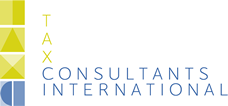Corporate Tax Services Company Formation Services Corporate compliance Transfer Pricing Services Corporate Structuring Transfer Pricing International Tax Planning Mergers & Acquisitions Tax compliance
Dutch taxes levied at source for dividends, interest and royalties paid to non-residents.
When profits are repatriated from a Dutch company by dividends, interest, or royalties, Dutch tax may become due at source.
Dividend withholding tax
The Dutch domestic withholding tax rate for dividend distributions, including interest on particular categories of profit-participating loans, is 15% (2023).
No dividend withholding tax is due on qualifying corporate dividends, i.e., dividends distributed by a Dutch corporation to a Dutch corporate shareholder which is entitled to the participation exemption for this dividend income, or a foreign corporate shareholder established in a treaty country which would have been titled to the participation exemption for this dividend income if it would have been a Dutch tax resident.
In other cases, the Dutch dividend withholding tax rate for foreign corporate shareholders, the withholding rate for inter-company dividends is often reduced, in many cases even to nil percent, due to the application of tax treaties or the implementation laws based on the EU Parent-Subsidiary Directive.
The Dutch dividend withholding tax rate based on a domestic exemption, an applicable tax treaty, or an EU Directive is likely subject to anti-abuse provisions.
We refer to our online Dutch tax treaty database for an overview of the Dutch treaty rates for dividends,
Conditional withholding tax on dividends
Effective January 1, 2024, the Act's conditional withholding tax on dividends will come into force. From that moment on, an additional withholding tax will become due on dividends to qualifying corporate shareholders in certain low-tax jurisdictions and particularly deemed abuse situations.
The rate equals the highest corporate income tax rate (in 2023: 25%).
The conditional withholding tax on dividends will be levied in addition to the existing regular dividend withholding tax, but there is an anti-accumulation provision.
The conditional withholding tax will first become due for qualifying dividend payments as of January 1, 2024, regardless of whether or not a tax treaty or EU Directive prescribes a lower rate.
The conditional withholding tax applies to payments to entities in low-tax countries and if certain deemed abuse situations occur. A low-tax country in this context does not levy a profit tax or has a rate of less than 9% or a country that appears on the EU list of non-cooperative jurisdictions for tax purposes.
The following countries are currently (2022) considered low-tax countries and on the Dutch blacklist: Anguilla, Bahamas, Bermuda, British Virgin Islands, Guernsey, Isle of Man, Jersey, Cayman Islands, Turkmenistan, Turks and Caicos Islands, Vanuatu, US Virgin Islands, American Samoa, Fiji, Guam, Palau, Samoa, Trinidad and Tobago and Vanuatu.
As of October 12, 2022, the EU list of non-cooperative jurisdictions for tax purposes includes American Samoa, Anguilla, the Bahamas, Fiji, Guam, Palau, Panama, and Samoa.
The new conditional withholding is specifically designed to tax outbound corporate dividends in two situations that are currently outside the scope of the regular dividend withholding tax:
- Corporate dividends to shareholders are established in a low-tax or non-cooperative jurisdiction with which the Netherlands has concluded a treaty to prevent double taxation. The regular dividend withholding tax is often reduced by applying tax treaty provisions.
- Corporate dividends by a non-holding cooperative society to an entity in a low-tax or non-cooperative jurisdiction. A non-holding society is usually not subject to the regular dividend withholding tax.
The Dutch entity that declares the dividend is the designated withholding agent for the conditional withholding tax. The taxable basis is the same as the regular Dutch dividend withholding tax. However, the taxable moment is explicitly different: the regular dividend withholding is to be withheld and becomes payable within one month after the date at which the dividend has been put to the disposal of the shareholder(s), the new conditional withholding tax on dividends, is levied over all qualifying dividends during the calendar year and then becomes reportable and payable within one month after the end of the calendar year.
The tax base for the conditional withholding tax on dividends is the same as the basis of the 'regular' dividend withholding tax.
The indirect tax credit for re-distributed dividends
Dutch tax law contains a special provision for dividends paid by Dutch corporations to foreign shareholders that originate from dividends received from other countries. In short, if a Dutch corporation re-distributes dividends subject to a foreign withholding tax, the Dutch corporation is, under certain circumstances, entitled to a credit on the Dutch withholding tax it is supposed to pay over the dividends it declares itself (indirect tax credit). The credit can amount to up to 3% of the dividend declared.
No branch tax in the Netherlands
The repatriation of profits by a Dutch branch to its foreign head office can be done without the levy of Dutch withholding tax.
The Netherlands does not levy any tax on the repatriation of profits by a branch to its foreign head office.
Dividend payments to a Dutch branch by a Dutch company (the Dutch branch functions as holding) can be eligible for the domestic exemption of the Dutch dividend withholding tax at the level of the Dutch company.
Withholding tax on outbound interest and royalties
As of January 1, 2021, the Netherlands levied a withholding tax on interest and royalty payments by an entity established in the Netherlands to a qualifying affiliated entity in a low-tax country and in certain deemed abuse situations.
The rate equals the highest corporate income tax rate (in 2023: 25%) unless an applicable tax treaty or EU Directive provides a lower rate.
A qualifying affiliated entity exists when the entity receiving the payment has a qualifying interest in the paying entity, the paying entity has a qualifying interest in receiving the payment, or a third party has a qualifying interest in both the receiving entity and the paying entity.
There is deemed to be a qualifying interest as an entity has directly or indirectly the decisive voting power in and control over another entity, and that will generally be the case if it has more than 50% of the statutory voting rights.
The withholding tax applies to payments to entities in low-tax countries and if certain deemed abuse situations occur. A low-tax country does not levy a profit tax or has a rate of less than 9% or a country that appears on the EU list of non-cooperative jurisdictions for tax purposes.
The following countries are currently (2022) considered low-tax countries and on the Dutch blacklist: Anguilla, Bahamas, Bermuda, British Virgin Islands, Guernsey, Isle of Man, Jersey, Cayman Islands, Turkmenistan, Turks and Caicos Islands, Vanuatu, US Virgin Islands, American Samoa, Fiji, Guam, Palau, Samoa, Trinidad and Tobago and Vanuatu.
The Dutch entity that makes the payment is the designated withholding agent for the withholding tax at the moment that the interest or royalties:
- are paid, or
- settled and offset, or
- become interest-bearing, or
- become due and payable.
Note: interest or royalties accrued during the year are for the withholding obligation deemed to have been paid on December 31 of the year it accrued.
The withholding tax must be withheld from the gross amount of the interest or royalties paid. If the withholding agent withholds tax on its account, it requires a gross-up.
Dutch income tax or dividend withholding tax on outbound interest or royalty payments
Interest or royalty payments to a foreign corporate or individual substantial shareholder may become subject to Dutch income tax (and sometimes Dutch dividend withholding tax). Still, in many cases, Dutch tax treaties prevent (or limit) the Netherlands from exercising this right on taxation.
We refer to our online Dutch tax treaty database for an overview of the Dutch treaty rates for interest and royalties.
Dutch taxation over outbound interest payments can occur if;
- A loan is requalified as capital for tax purposes, as dividend withholding tax becomes due over the interest payments that are then requalified as dividends.
- Dutch corporate income tax may become due if the recipient of the interest is a 'substantial shareholder' in the borrower, and the motive for holding the shares in the Dutch company must be considered the avoidance of Dutch tax.
- The interest income must be included in the taxable profits of a Dutch permanent establishment if the receivable must be allocated to the equity of this Dutch permanent establishment.
A 'substantial shareholder' is any person - individual or corporation - (or a related group of persons) who directly or indirectly owns 5% or more of the issued capital of a Dutch or foreign corporation or entity deemed to be treated as a corporation. Please note that the percentage of ownership in this context can include options/warrants.


.png)








